Automating Hard or Hardly Automating? George Jetson and the Manual Labor of Tomorrow
And you think you’re having a bad work week, just think about the robots
This is the 19th in a 24-part series looking at every episode of “The Jetsons” TV show from the original 1962-63 season.
“Yesterday, I worked two full hours!” George Jetson complains.
“Well, what does Spacely think he’s running? A sweatshop!?!?” Jane replies.
The 19th episode of “The Jetsons” first aired on February 3, 1963, and was titled “G.I. Jetson.” The episode begins with George having a nightmare about his tyrannical boss, Mr. Spacely. Apparently Mr. Spacely thinks he can get away with forcing people to work what’s considered inhumane hours in the year 2063 — two whole hours a day!
As we’ve seen time and again, this idea of a push-button future of leisure that would ultimately result in considerably fewer working hours was not only a Jetsonian staple — it was a mainstream assumption made by even the most conservative of prognosticators. The idea that the push-button would dramatically reduce the average American’s workload was a given, it was only a question of how quickly it would happen and how we’d occupy all of this new free time. By the year 2000, advances in automation were supposed to give us an average workweek of 30 or maybe even 20 hours. Maybe we wouldn’t even have to work at all.
This world of little to no work would have its effect on the home and transportation of the future, but it would also impact jobs often considered the most back-breaking — like those in the armed services.
During “G.I. Jetson” George learns via tele-tape (delivered by Western Universe) that he must report for two weeks of training in the United States Space Guard. For a moment, George thinks that this will at least give him some respite from seeing his loathsome boss every day. But, of course, it’s never that simple. Mr. Spacely is also called up for the U.S. Space Guard and pretty soon they’re off to Camp Nebula together.
Once George, Henry, Spacely and the rest of the crew arrive at Camp Nebula poor George and Henry discover that they’ll be working hard. At least by 21st century standards.
“I don’t know about you Henry but all this manual labor has me worn out,” George whines to Henry.
“I don’t know if I can take two weeks of this… oh boy!” Henry concurs.
With an army of robots at our disposal, the exhausting work of the past might very well be replaced by the tedium of the future. That is, unless our definition of hard work changes.
But lest you think this vision of push-button electrical servants has its origins in the 20th century, take a look at some visions of the year 2000 from 19th-century France. There are conflicting reports of where and why these illustrations were created. But I’m inclined to believe Isaac Asimov, who wrote an entire book about them in 1986 titled Futuredays: Nineteenth-Century Vision of the Year 2000. According to Asimov these illustrations were created by Jean Marc Cote in 1899 who was commissioned to produced them for a series of cigarette cards. The company that was intending to release them supposedly went out of business, leaving just one set of cards.
I can’t speak to the veracity of these claims, but lining them up next to stills from “The Jetsons,” we can yet again see that this midcentury cartoon didn’t invent the promise of push-button leisure.
Uniblab makes a return appearance in this episode and this deceitful robot is up to all his old tricks. By the end of the episode, George and Henry are yet again sabotaging Uniblab, causing Mr. Spacely a considerable amount of stress and damage to his reputation. And much like the lesson of the 10th episode, viewers are left to decide if the automatons of tomorrow are more foe than friend. Especially when they still make you slave away for two whole hours a day.
/https://tf-cmsv2-smithsonianmag-media.s3.amazonaws.com/accounts/headshot/matt-novak-240.jpg)
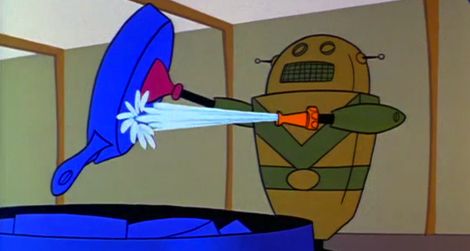
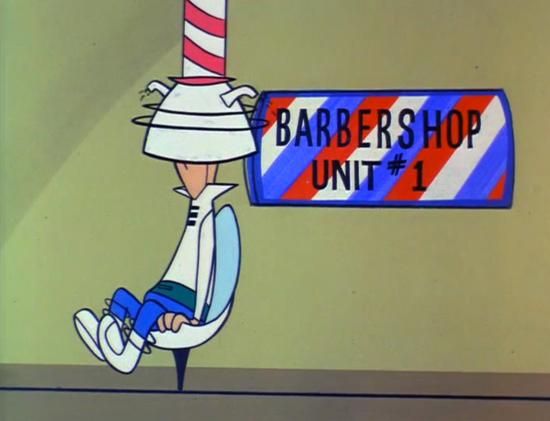
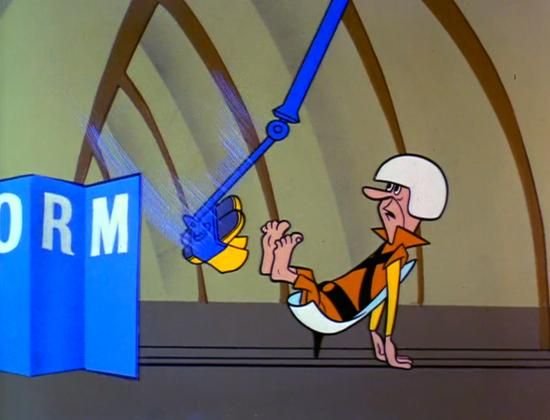
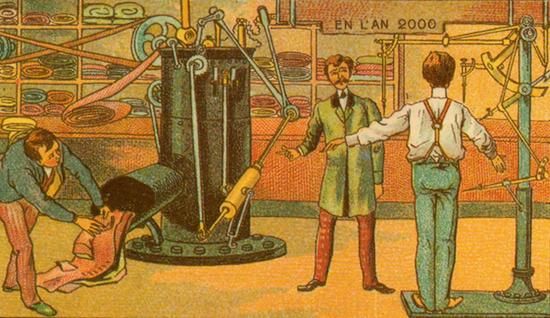
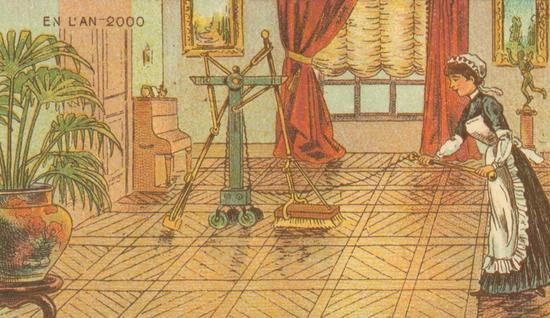
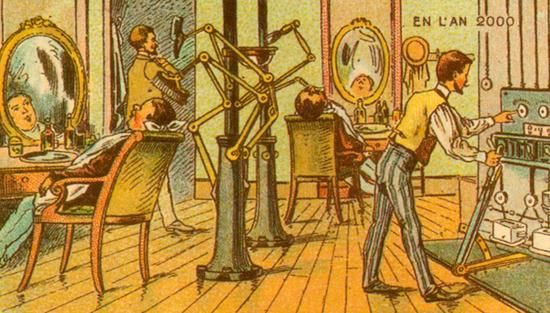
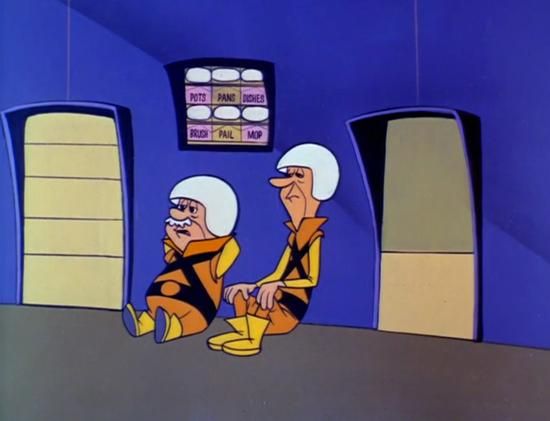

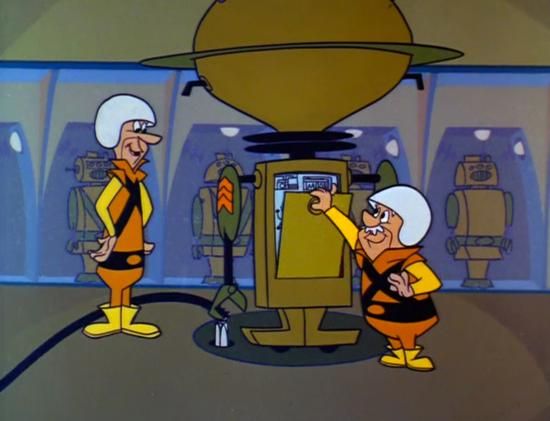
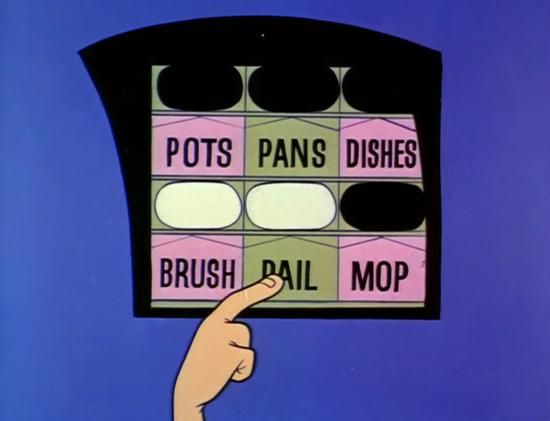
/https://tf-cmsv2-smithsonianmag-media.s3.amazonaws.com/accounts/headshot/matt-novak-240.jpg)